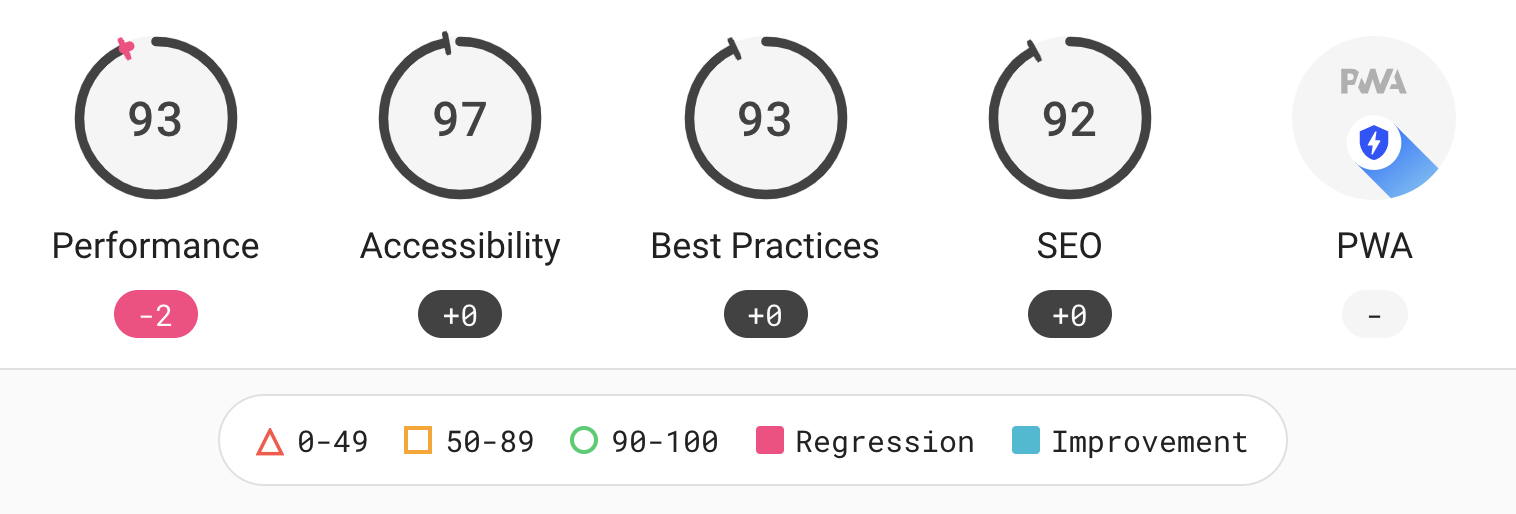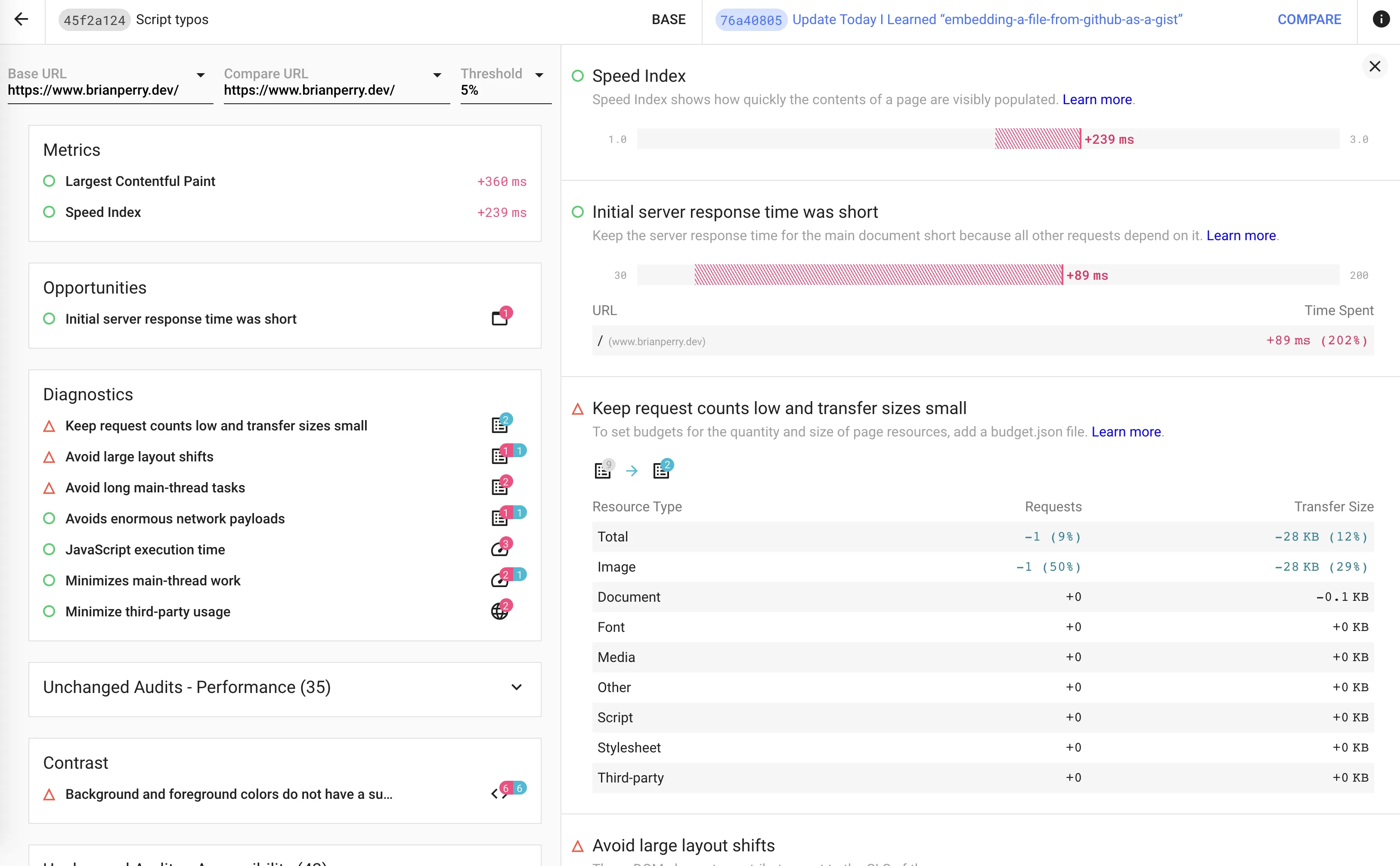
Running Lighthouse CI Server Locally
I had previously set up Lighthouse CI with Github Actions, but I still found myself looking longingly at the reports provided by Lighthouse CI Server as a way to compare results over time. While the docs are mainly focused on running on a public server with persistent storage (which is clearly the most useful way to do this,) I couldn’t help but wonder if I could run the server locally to capture some quick data comparing a few specific changes. Turns out you absolutely can. The docs provide an example Docker container to use locally, but I went with the even lower-fi solution.
From within the repository containing the code that I’m measuring, I added packages for Lighthouse CI Server, along with sqlite for data storage.
npm install -D @lhci/cli @lhci/server sqlite3
I also added Concurrently as it made it easier to start the server and collect data in one fell swoop:
npm install -D concurrently
While I was messing around with package.json I added the following scripts:
"scripts": {
"lhci:audit": "concurrently \"npm run lhci:server\" \"lhci autorun\"",
"lhci:wizard": "lhci wizard",
"lhci:server": "lhci server --storage.storageMethod=sql --storage.sqlDialect=sqlite --storage.sqlDatabasePath=./db.sql"
},
With those scripts in place, I can start the server by running:
npm run lhci:server
And then run the wizard with:
npm run lhci:wizard
The wizard will ask you a few questions about your server and your code repository, and then provide your build token and admin token. With that information in hand, I added lighthouserc.js in the root of my repository containing the following:
module.exports = {
ci: {
collect: {
url: ['https://www.brianperry.dev'],
},
upload: {
target: 'lhci',
serverBaseUrl: 'http://localhost:9001',
token: '###-###-###', // the build token provider by the wizard. Could also use LHCI_TOKEN variable instead
},
},
};
In my case, I added lighthouserc.js to the .gitignore for my project because I didn’t want these local settings to override the Lighthouse settings I already had working with Github Actions. You may also want to ignore .lighthouseci/ and db.sql as well if you are only planning to store this information locally.
With that in place I can now run
npm run lhci:audit
which will start the Lighthouse CI Server and record results for the current commit. If I run this repeatedly as commits are made, I can get a granular comparison of the impact of my changes.

This would certainly be more useful incorporated into your main CI process, but this local approach can still be useful for benchmarking a feature branch or making some other small scale measurement.